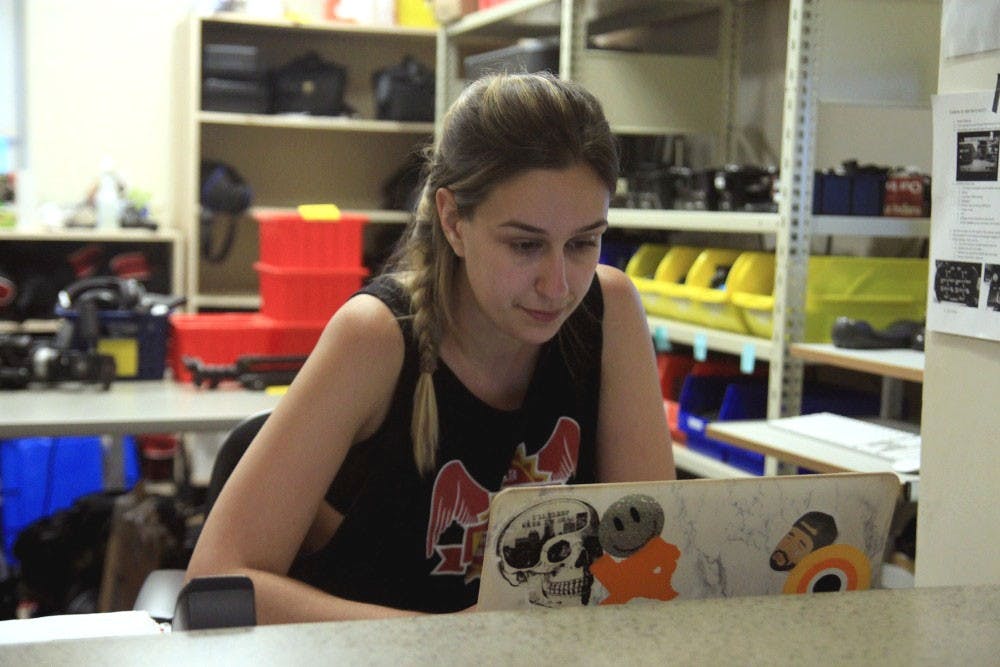Indiana high school students could fulfill graduation requirements through career training under a new bill in Indiana legislature.
House Bill 1002, authored by Rep. Chuck Goodrich, would establish career scholarship accounts students could use to pay for workforce training such as apprenticeships, internships and coursework outside of their school corporation. Students in grades 10-12 would be eligible.
House Speaker Todd Huston said in an Indiana Chamber of Commerce discussion last November his caucus wants to “reinvent high school,” Indiana Public Broadcasting reported,. This includes giving students the opportunity to use job experience for credit toward graduation. Other recent efforts by the state to revamp high school education include prioritizing workforce training, reducing the number of topics teachers are required to teach and providing more job-based opportunities for students.
Indiana Department of Education and the Governor’s Workforce Cabinet would determine the amount of money that would be put into each account. However, Goodrich proposed giving $2,500 to $5,000 for each students who chooses to participate in workforce training, according to the bill.
The bill would also prevent schools from receiving money for career and technical education for students already enrolled in the program. Students under Indiana’s 21st Century Scholar Program — which offers free college to students from low-income families — would be able to use their 21st Century Scholarship funds for postsecondary career training. Additionally, public schools would be required to hold at least one career fair per academic year.
The bill passed the Indiana House of Representative’s Education Committee and the Committee on Ways and Means Feb. 15. It will now head back to the House of Representatives for a second reading.
Christi McBride is the director of Hoosiers Hills Career Center, a career and technical education facility for high school students in Bloomington. Rep. Bob Behning, chairman of Indiana’s Education Committee, said during a committee discussion Jan. 18 many established career and technical education centers — such as Hoosier Hills — could provide training under the scholarship program.
The Indiana Department of Education would be responsible for approving courses and tracks for the career scholarship accounts. To qualify for the accounts, students would need to create a postsecondary plan agreed to by their school and employer about education or work options beyond high school . They would also be required to meet with an intermediary, an employer or a labor organization they seek to work with to discuss current and future career opportunities — a proposal McBride said raises concerns about student choice and sustainability.
McBride said she doesn't think the meetings are a necessity because students are already given a choice about whether to pursue workforce training, and she would like the state to waive these meetings for students who have already had these conversations with educators or employers.
McBride said she has concerns about whether the bill would make it harder to change vocations or attend a university in the future if a student changes their mind about their career path.
“We do not want to pigeonhole our students into a particular area," she said. "Right now there’s not clear wording on how they’re going to report the data for what happens if a student wants to change where they’re working or if they want to drop the program and go back to school."
Chad Lochmiller, an associate professor of educational leadership at the IU School of Education, said students in high school have diverse needs and need a variety of career and educational pathways.
"That includes college, career, workforce, the whole gamut,” he said. “The devil is in the details, because you want to know that students aren't being prematurely tracked into career or workforce training when it could be foreclosing on them having future college and university opportunities.
Access to programs could also be a concern, he said. Rural areas may already obtain less funding than larger areas for career and technical education centers, and he's concerned if that state funding was stripped away from those centers to put into the accounts, students would be left with fewer options.
Rather than immediately implementing the bill statewide, Lochmiller said he thinks piloting it in a few select areas first would allow for a better evaluation of the program's successes and failures to create a system that works for the state as a whole.
"Going for a statewide model right off the bat introduces variables that we can't control and that we don't know how they'll affect students," Lochmiller said.




